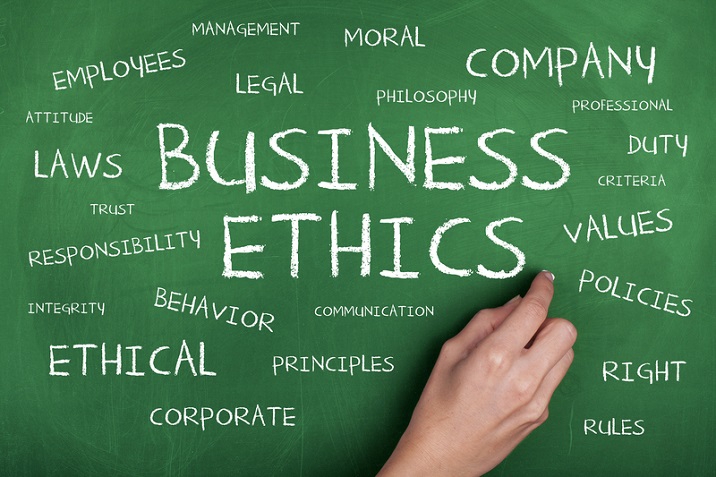What the paper says ?
Business Ethics
The term “Business Ethics” can be defined as the applied formulation of professional ethics that can be helpful for regulating the business operation and environment in a transparent and positive way while “Corporate Social Responsibility (CSR)” focuses on the overall sustainability of the environmental, social, and economic operation. As per the view of Ferrell et al., (2019), business ethics can be treated as an integral part of the “social activities” of a business organisation that impart scope for the management of brand image within the competitive marketplace. As perceived by Ferrell et al., (2019), the implementation of a complementary framework helps in balancing the “pre-eminence of stakeholder management”, business ethics, and CSR activities. As a result, through the inclusion of social understanding, and environmental sustainability practices within the business operations a company becomes able to reflect brand attitude along with “Customer-brand relationship” in the consumer segment in this digital age.
According to Ferrell et al., (2019), almost 50% of the "consumer research" blends business ethics and CSR (Corporate Social Responsibility), whereas "consumer ethics" scales fundamentally measure the different perspectives of personal ethics related to the firm behaviour of Business ethics and CSR. In an argumentative manner, Manasakis, (2018) has stated that over the years CSR has become an integral part of mainstream business practice for attracting broad attention, customers, along with policymakers to lead business firms to environmental and social footprints through business activities. Within the context of the research of Ferrell et al., (2019), Harrison et al., (2020) have satiated that CSR and “Business Ethics” needs to be reframed based on the fundamental business objectives, assets availability, resource compatibility, and many more. Therefore, considering CSR and “business ethics” as the two endpoints of a business operation have an overall reflection on the achievement of positive customer relationships. Thus, it can be stated that the incorporation of dynamic changes within the business operation and activity control practices with “ethics” gets fundamentally addressed the business mission and objectives.
According to the findings of Ferrell et al., (2019), the formation of business misconduct in this digital era is directly associated with customer relationships. The occurrence of business misconduct gets directly reflected in negative customer preferences, which subsequently created adverse negative consequences on the customer’s repurchase intention. In support of this statement, Harrison et al., (2020) have stated that digital businesses need to maintain focus on ethical responsibility, environmental sustainability, philanthropic responsibility along with the economic responsibility. Therefore, through the fulfilment of societal expectations and environmental regulations, a digital brand will be able to maintain a strong and diverse customer base, which essentially allows the business entity in maintaining a sustainable position in the marketplace.
The emerging growth of “business ethics” and CSR strategies within industrial operations gets emphasized the enhancement of increased activism among internal and external stakeholders. In fact, it is associated with the “Proliferation of the CSR codes and standards” that essentially contributes towards ensuring ethical business operations. The study by Ferrell et al., (2019) has addressed the impact of business ethics on stakeholder engagement through the evaluation of “Stakeholder Theory”, “business ethics theory” and many more. According to Ferrell et al., (2019), business ethics includes” standards and moral principle”, which assists a business entity in taking the right and ethical decisions. From the perspective of Ferrell et al., (2019), it can be stated that ethical brands often get explored from the overall perspective of “social responsibility” issues like fair trade, improvement of customer welfare, and many more.





Comments
Post a Comment